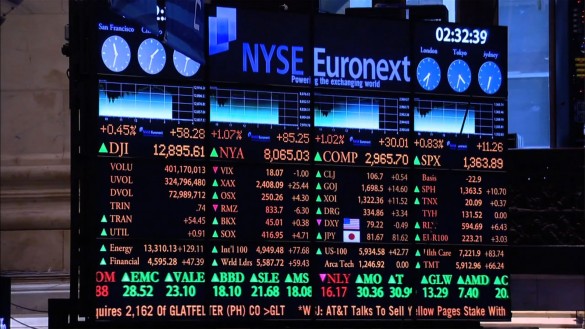
High-frequency trading aided by computer algorithms has been blamed for massive disruptions in equities markets in recent years, most notably the Flash Crash of May 2010, in which the Dow Jones Industrial Average plummeted more than 1,000 points in minutes.
While high-frequency trading has been linked to several high-profile episodes, a new study conducted by Vanderbilt University finance professors Nicolas P.B. Bollen and Robert E. Whaley finds there has been no discernable uptick in average global market volatility correlated with the rise of high-frequency computer trading.

“If market microstructure considerations play an important role in the measurement of realized volatility,” then that level of realized volatility should exceed the implied volatility measured by the CBOE’s Market Volatility Index, or VIX. “Indeed, just the reverse is true,” write Bollen and Whaley in the study, which was commissioned by the Futures Industry Association(FIA), a trade group representing major derivatives markets. The authors found similar results for market volatility benchmarks in London and Europe.

The authors also tracked a signal-to-noise ratio for return volatility over time. This confirmed the presence of “microstructural effects” — factors like the increased use of high frequency, algorithmic trades. “But, more importantly, the relative magnitudes (of volatility) have not increased meaningfully through time,” the authors write. “Taken together, these two results indicate that, after controlling for changes in the rate of information flow, there is no evidence to suggest that realized return volatility in electronically-traded futures markets has changed through time.”
To gauge volatility across a broad section of the market, Bollen and Whaley examined 15 futures contracts markets: Seven interest-rate futures contracts, five stock-index futures contracts, two crude-oil futures contracts, and one agricultural-futures contract.
“We don’t deny that high frequency trading can cause temporary problems,” Bollen said in summarizing the findings. “What we do show is that at typical measurement frequencies – daily and monthly, for example — volatility levels do not appear to be affected by the rise in high frequency trading. For long-term investors these are the frequencies that matter.”
By Ryan Underwood